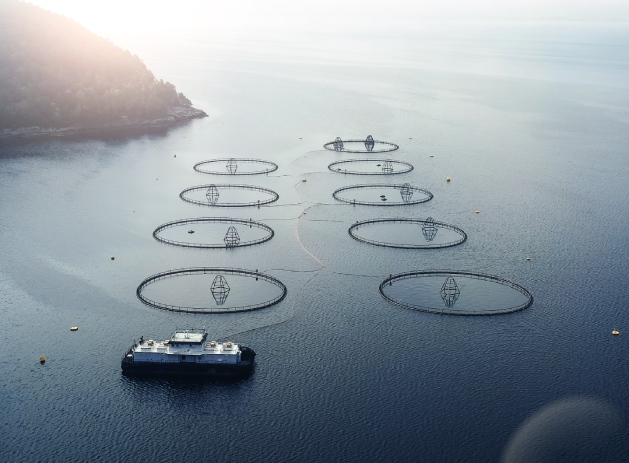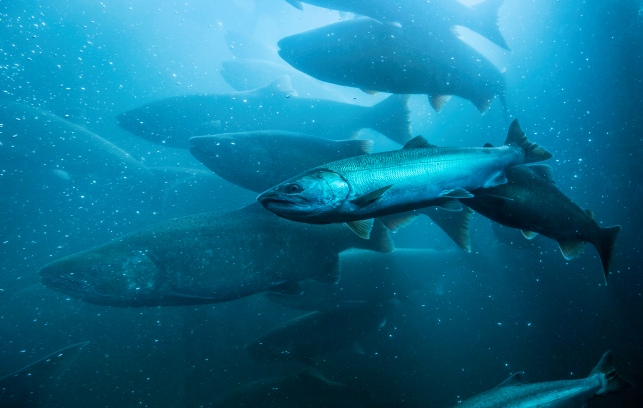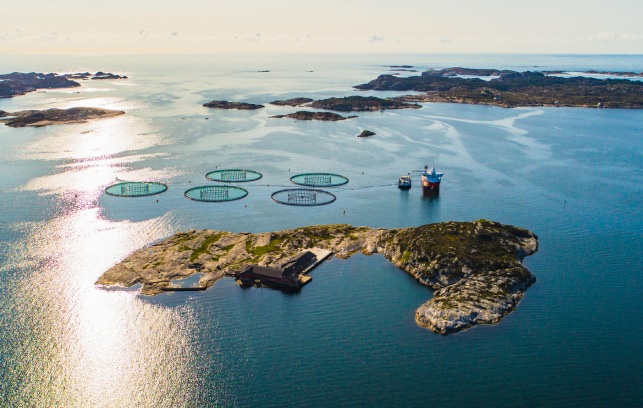Steen-Hansen and Janssen PMP: a sustainable relationship
09 Aug, 2023At Janssen PMP, we collaborate with partners and cooperations from around the globe. Our common aim: to build a more sustainable world. One of those partners is Steen-Hansen AS, a global developer and producer of impregnation products for aquaculture. We had a talk with Ulrik Ulriksen, director of operations at Steen-Hansen, on how they are tackling challenges and are gearing up to evolve and improve in an ever-changing industry.

Where there's industrial fishing, there's Steen-Hansen
|
Steen-Hansen is a global market leader on antifouling and coating, that develops and produces specialised coatings for industry and challenging environments both on-shore and at sea. Today, they produce 20 million litres of coating from their brand-new factory in Hylkje, Norway. But that is not precisely where it all started, says Ulrik Ulriksen. "Starting out as a clean-paint supplier in 1947, we have focused everything on industrial paints and especially environmentally friendly antifouling agents for the aquaculture industry. We work all around the world, and so we're present in major industrialised aquaculture regions such as our homebase Norway, but also Chile, UK, and the Mediterranean. Wherever there's industrial fishing on a grand scale, there is Steen-Hansen." |
A major player with a simple objective
|
Steen-Hansen is a major player with a major impact. Being aware of their responsibility, they are quite demanding for themselves. "We pursue a simple objective: helping our customers keep cleaner nets for the sake of fish, humans and the environment. In the first place, because there's no use in talking about sustainability if you don't act. In the second, because our products will simply vanish from the market if they are not on par with environmental targets. So, for us, getting our products EU-approved was a crucial matter."
The road to ECONEA®In 2013, the EU issued its own biocide directive and provided a list of approved substances for biocides. Steen-Hansen picked up the signals. The company has used the properties of ECONEA®, a Janssen PMP product, to create water-based agents that do not pose a danger to the environment when they dissolve. The active substance ensures that the hydroid – the foul – dies before it can multiply. "Our team intensively researched all of the biocides from the EU list. After a vast range of tests, the drug tralopyril, patented under the ECONEA® brand, eventually stood out. It quickly decomposes into the sea into smaller molecules, so that it doesn't harm the environment. And yet, it's still highly efficient and provides a long period of protection. ECONEA® was already used in solvent-based ship paints, so we had to adapt it to farming with water-based components. It took a lot of work, but we found what we were looking for. AquaNet Boost, for example, a copper-reducing option with ECONEA® as additional biocide, proved to be more effective than those with only copper."
A double-digit millions authorisationThe whole ECONEA®-based product family was the very first to be BPR approved in the EU.", Ulriksen explains. An authorisation that, so it turns out, has required "double-digit millions, hundreds of pages of scientific documents from independent laboratories and risk assessments". But now, the future looks bright. "Carrying the Biocidal Product Regulation certificate means that we, as Steen-Hansen, can ensure our clients that their products do not represent unacceptable risks to the health of humans, fish or the environment. That's a strong hand to hold as a company."
The MAMPEC modelIn recent years, Steen-Hansen has developed even more efficient and environmentally friendly impregnations for nets. "We have developed MAMPEC, an environmental modelling and certification programme for fish farming companies. It helps them to get an idea of the environmental impact of the impregnation they use.", says Ulrik. And that's especially true when it comes to emissions of copper and chemicals. Copper has been around for years as the most important active ingredient in net impregnation. "Basically, it's a good solution because it works well against fouling. And it's a natural substance that adds to the normal growth of most plants and animals. But there's something like overdoing it, which happens when flushing the nets. When a copper concentration becomes high enough, it can be devastating for marine life. MAMPEC helps fish farmers to alert them in time so they can take measures.", he explains.
Let's get more from the oceanKnowing the environmental footprint upfront, gives you the opportunity to choose wisely. "If the evidence shows that a net treatment could harm the environment, that may very well be a good reason to switch to completely copper-free solutions. We must continue to work to ensure that products and services have even fewer negative consequences for climate and the environment than they do today. According to the UN, we must increase the world's food production by 60 per cent over the next few years. To make it happen, we need to get more from the ocean. Assuming that's sustainable, of course. So, there is work to do."
Making things betterSteen-Hansen has helped to improve working and living conditions for both fish farmers and consumers. But it doesn't stop there. "The great thing about this industry is that there is incredible interest in making things better. And it is very much fun to have service stations and farmers as customers. You just have to explain why the products are better, then they are very willing to hear, very willing to test out. They're a dream to work with. Just like Janssen PMP, that is a true partner working towards a better future. It's the kind of collaboration that benefits everyone.", concludes Ulrik Ulriksen. |

